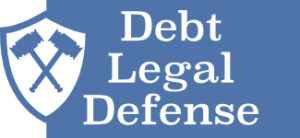Student loan consolidation with the Department of Education involves changing the terms of your debt to make it more affordable. You bring together all of your federal student loans, fill out an application and promissory note, and a new loan is issued by the federal government to replace the old ones. You then only make one payment every month.
Loan consolidation is not for everyone, but you should consider it if you:
- Would like to lower your monthly payment amount.
- Have older federal loans through the Federal Family Education Loan Program or Perkins loans, as you will not qualify for loan forgiveness or IDR plans.
- You want a fixed interest rate so you can budget for the same payment.
Keep in mind that while consolidation and refinancing are often used interchangeably and are quite similar, only federal student loans through the Department of Education are eligible for consolidation.
Dangers of Defaulting on Your Student Loans
If you are having difficulty paying your Federal student loans, the last thing you want to do is to just stop paying them. Doing so will put your loans in default and you may face some consequences, such as:
- Withheld tax refunds
- Lose additional federal student aid
- Negative impacts to credit score
- Social security retirement benefits will be at risk
- Risk being sued by a loan servicer
Consolidation can be a viable option for anyone looking to get their student loans in order in a more affordable way.
Benefits of Consolidating Your Federal Student Loans
At this point, consolidation is likely looking good. You can reduce the confusion of having multiple loans that add up to great expenses every month and instead reduce your payments in number and amount. So, are there any more benefits to consolidation?
- You won’t have to have a credit check to qualify
- Switch from a variable interest rate to a fixed interest rate
- Lower your monthly payment amount
- Receive one bill each month, rather than multiple
- Get access to federal loan repayment options and other options
Of course, there are always a few things to look out for when you consolidate, such as:
- Your interest rate will not decrease, it will just be fixed.
- If you have any loans with unpaid interest, when they are consolidated, that unpaid interest will be reflected as principal in your new loan.
Consolidating Your Federal Student Loans
If you think that consolidation is your best route to take for your finances, then you can begin the process with the U.S. Department of Education. With the completion of the Federal Direct Consolidation Loan Application and Promissory Note, you will agree to the terms of a new Direct Consolidation Loan.
The application process generally takes no more than 30 minutes, but it takes approximately 30-45 days on average for the consolidation process to go through.
Learn How to Consolidate Your Federal Student Loans
If you are having a hard time keeping up with your student loans or have found yourself in default, your Debt Legal Defense team can help you. We can review your student loans and your goals and help you to determine the best method of getting your payments under control and getting you some relief.
Contact our office at (210) 468-1008.






